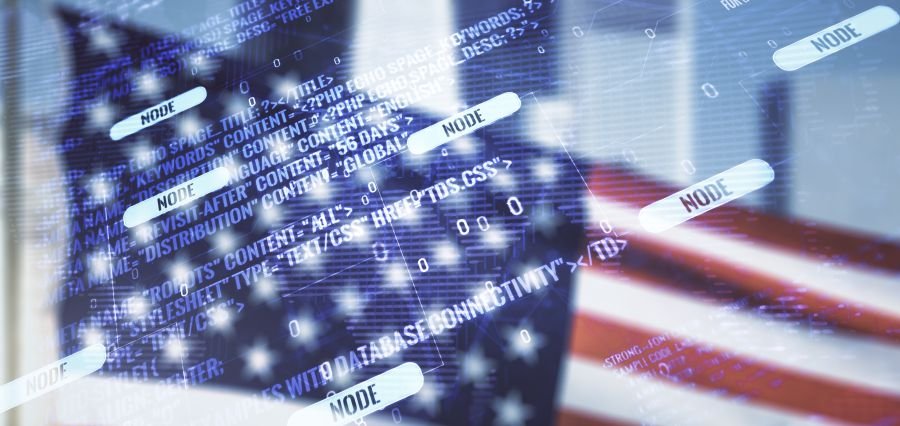Assessing the Influence of Tech Giants on Innovation, Competition and Regulation
In recent years, the dominance of Big Tech companies in the American economy has become increasingly prominent, raising concerns about their influence on innovation, competition, and regulation. As giants like Google, Apple, Facebook, and Amazon continue to expand their reach across various sectors, evaluating the implications of their dominance on the economy is essential.
Driving Innovation and Technological Advancement:
Big Tech companies have played a significant role in driving innovation and technological advancement in the American economy. Through substantial investments in research and development (R&D), acquisitions of innovative startups, and the development of groundbreaking technologies, these companies have propelled the nation to the forefront of the global tech landscape.
Their innovative products and services have transformed industries, revolutionized consumer experiences, and contributed to economic growth and prosperity.
Challenges to Competition and Market Dynamics
Despite their contributions to innovation, Big Tech companies’ dominance has raised concerns about competition and market dynamics.
The immense market power wielded by these giants has enabled them to establish near-monopolistic positions in certain sectors, limiting competition and stifling opportunities for smaller competitors and startups.
Critics argue that this concentration of power hampers market dynamism, restricts consumer choice, and hinders the emergence of new entrants, ultimately resulting in reduced innovation and higher barriers to entry.
Regulatory Scrutiny and Antitrust Concerns
The growing influence of Big Tech has prompted increased regulatory scrutiny and antitrust investigations from government agencies and policymakers. Concerns about monopolistic practices, anti-competitive behavior, data privacy violations, and the potential misuse of market power have fueled calls for stronger regulation and enforcement actions.
Lawmakers have proposed various legislative measures to curb Big Tech’s dominance and promote fair competition, including antitrust reforms, data privacy regulations, and platform accountability measures.
Balancing Innovation with Regulation
Achieving a balance between fostering innovation and regulating Big Tech presents a complex challenge for policymakers. While regulation is necessary to address concerns about market concentration and anti-competitive behavior, overly restrictive measures risk stifling innovation and impeding economic growth.
Striking the right balance requires careful consideration of potential trade-offs and developing targeted regulatory frameworks that promote competition, protect consumer interests, and encourage innovation.
Impact on Job Creation and Labor Markets
The rise of Big Tech has profoundly impacted job creation and labor markets in the American economy. On one hand, these companies have been major drivers of employment growth, creating thousands of high-paying jobs in areas such as software engineering, data science, and digital marketing. Their expansive ecosystems of suppliers, partners, and service providers have also generated additional employment opportunities across various sectors.
However, the increasing automation and digitization of processes driven by Big Tech have also raised concerns about the displacement of traditional jobs and the widening of economic inequality. Automation and artificial intelligence (AI) technologies have the potential to streamline operations, improve efficiency, and reduce costs for businesses. Still, they also pose challenges for workers in industries susceptible to automation. As a result, there is a growing need for policies and programs aimed at reskilling and upskilling workers to adapt to the changing demands of the digital economy.
Data Privacy and Consumer Protection
Another critical aspect of Big Tech’s impact on the American economy is its handling of user data and consumer privacy. Tech giants collect vast amounts of personal data from users through their platforms and services, raising concerns about data privacy, security, and potential misuse. Instances of data breaches, unauthorized access, and the unauthorized sharing of user data have sparked public outcry and led to calls for stronger data privacy regulations.
In response to these concerns, policymakers have proposed various legislative measures aimed at enhancing data privacy protections and empowering consumers to control their personal information. Regulations such as the California Consumer Privacy Act (CCPA) and the European Union’s General Data Protection Regulation (GDPR) have set new standards for data privacy and placed greater accountability on companies to safeguard user data.
Influence on Economic Growth and Competitiveness
Big Tech’s influence on the American economy extends beyond individual sectors and industries, shaping the nation’s overall economic growth and competitiveness. The innovation-driven economy fueled by Big Tech has positioned the United States as a global leader in technology and entrepreneurship, attracting talent, investment, and business opportunities worldwide.
However, the concentration of economic power in the hands of a few tech giants also poses risks to long-term economic competitiveness and innovation. Addressing these challenges will require a multifaceted approach that balances the benefits of innovation with the need for fair competition, consumer protection, and regulatory oversight. By fostering a vibrant and competitive tech ecosystem, policymakers can ensure that the American economy remains dynamic, resilient, and inclusive despite evolving technological trends and market dynamics.




